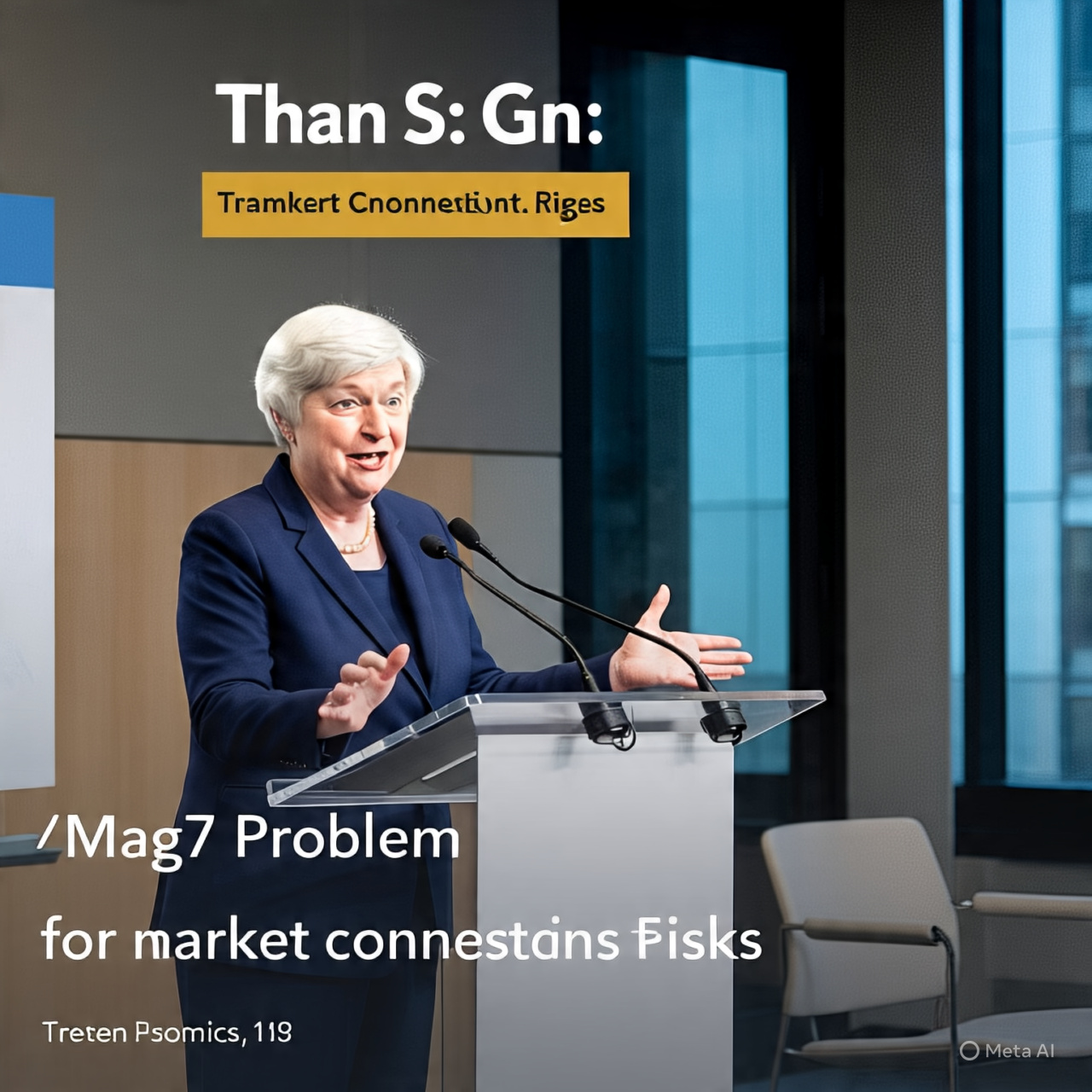FnF News
Treasury Secretary Warns of ‘Magnificent 7’ Market Imbalance as Concentration Risks Deepen
FNF News | May 22, 2025
In a sobering assessment of current market dynamics, U.S. Treasury Secretary Janet Yellen has acknowledged growing concerns surrounding the outsized influence of the so-called “Magnificent Seven” tech giants, stating that the United States now faces a “Mag7 problem” — a reference to the market concentration driven by the top-performing tech stocks.
While Yellen did not cite specific companies in her recent address, analysts widely agree the group includes Apple, Microsoft, Nvidia, Amazon, Alphabet (Google), Meta (Facebook), and Tesla — firms that have seen explosive growth and are now responsible for a disproportionate share of gains in the S&P 500.
“I think he does realize it,” said a senior Treasury official under anonymity, referring to President Biden’s awareness of the growing imbalance. “It’s not sustainable to have an entire index and, by extension, public confidence in economic strength, riding on seven corporations.”
What Is the Magnificent Seven Problem?
The “Mag7 problem” refers to an increasing market concentration where a small number of mega-cap companies account for the majority of equity market gains, creating a distortion in broader economic perception. In 2023 and 2024 alone, these seven companies were responsible for over 60% of the S&P 500’s total returns, according to Goldman Sachs and Bloomberg data.
This hyper-concentration has prompted warnings from major institutions like BlackRock, Morgan Stanley, and even the Federal Reserve, who warn that the market is becoming fragile, overly reliant on the performance of a few stocks while neglecting underlying weaknesses in other sectors.
Yellen: A ‘Distorted Reflection’ of the Economy
Speaking at the Council on Economic Priorities Summit in New York, Yellen remarked:
“When a few tech companies dominate the market narrative, we risk mistaking market performance for economic health. That’s not only misleading—it’s dangerous for long-term policy planning.”
Her comments come amid pressure from progressive lawmakers to enforce more robust antitrust regulations, particularly as these tech firms continue to expand their influence into sectors like AI, healthcare, and financial services.
Market Reaction and Political Response
The markets initially showed a muted response to Yellen’s comments, though several financial analysts noted a slight sector rotation during the following trading session, with increased movement into value stocks, energy, and industrials.
Senator Elizabeth Warren (D-MA) weighed in, stating:
“The Mag7 problem is a policy failure. We cannot allow unchecked tech monopolies to dictate our economic future.”
On the other side of the aisle, Republican lawmakers have accused the Biden administration of trying to “scapegoat innovation” to distract from inflation and sluggish job growth.
What’s Next for Regulators?
Experts believe Yellen’s remarks may signal a shift toward more regulatory scrutiny of Big Tech’s market dominance, especially as AI adoption skyrockets and platforms like Nvidia, Amazon Web Services, and Google Cloud become infrastructure staples.
Bank of America recently published a report forecasting that if tech concentration remains unaddressed, the next recession could be worsened by a sharp correction in these few companies—akin to what was seen in the dot-com collapse.
Conclusion
While the Magnificent Seven continue to drive investor optimism and index returns, the growing attention from regulators like Treasury Secretary Yellen may signal a broader conversation about the future of the U.S. economy. The risk of relying on a handful of corporate giants for economic validation is no longer a fringe concern—it’s now at the top of Washington’s financial agenda.
Sources:
- Bloomberg: “Market Fragility Behind Big Tech Gains”
- Reuters: “Yellen Warns Against Market Overconcentration”
- CNBC: “S&P 500 Depends on Just 7 Companies”
- Financial Times: “The Mag7 and Risk to U.S. Growth”

